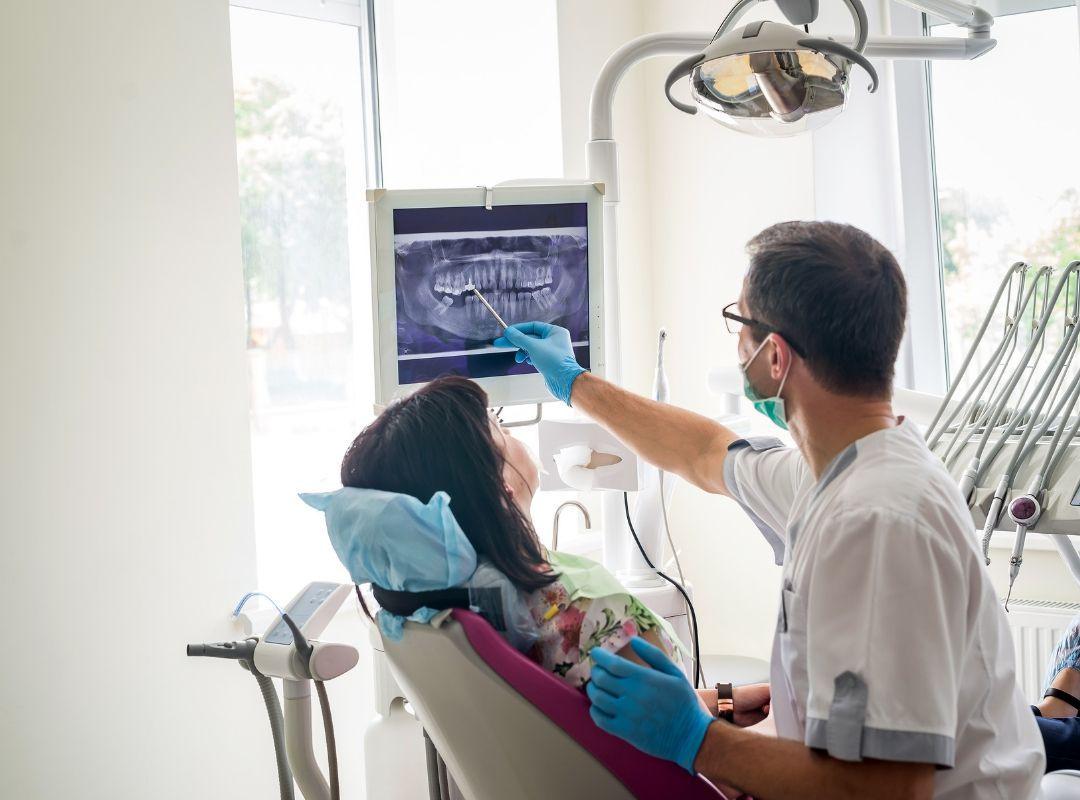
Dental Implants
Why Choose Dental Implants at Hay-on-Wye Dental?
Our Clinical Lead, Dr. Mitesh Badiani, has over 15 years experience in placing dental implants and has completed over 2000 implants in that time. Mitesh has been a clinical assistant professor for University of Warwick for over 10 years on the MSc Implant programme and is a mentor for both ”Ankylos and Bio Horizon” implant systems but has experience with over 8 other implant systems too.
If you'd like more information or to book a consultation, please contact us.
What are Dental Implants?

Dental implants are specially designed screws which are implanted into the jaw and act like natural tooth roots. They are a permanent replacement for missing or damaged teeth and with routine care, dental implants have a high level of success.
We can replace one or more teeth at the same time that they are removed by inserting an implant, made from titanium, into the empty extraction socket. The advantages of this technique for you are that:
-
Your jaw bone and gum tissue are preserved, minimising the effect that loss of a tooth has on the appearance of your smile and facial profile
-
You’ll need fewer visits for treatment because the tooth is removed and the implant placed on the same visit.
-
The waiting time for your new implant tooth is reduced
Immediate placement is only possible if you are suitable, this decision will be made by the clinician at your initial consultation.
Before your new tooth can be attached to the implant it is necessary to leave it undisturbed for several months while the bone attaches to its surface. During this period a small temporary denture or bridge may be worn to fill the gap.
The Benefits of Dental Implants
Replacing missing teeth has several advantages:
-
You feel great because you can talk, smile, eat and laugh again with confidence
-
Improved facial appearance – the loss of back teeth can cause your mouth to sink and face to look prematurely older
-
The correct functioning of your mouth – with missing teeth, your speech may be affected since the front teeth help to form certain sounds
-
Prevention of bone loss from the jaws – after teeth are removed, the jawbone that was associated with the roots of the missing tooth dissolves away. The insertion of dental implants restores the natural functions of the mouth
How Many Implants will I Need?
If one tooth is to be extracted then it can be replaced by a single implant. If a number of teeth are to be lost, more implants will be required. It is not always necessary to match the exact number of teeth being extracted, for example, it may be possible to fit three teeth on two implants. Eight implants are often all that are required to replace a full arch of teeth.
How are the Teeth Made?
Once implant bone attachment has been checked and confirmed, the new teeth can be made. They are made from tooth coloured porcelain producing a natural appearance, which is almost impossible to spot against natural teeth. A titanium post is connected to the implant and held in place with a small screw. The finished tooth is then glued onto the post with special type of dental cement.
What Your Treatment Involves
To avoid damaging the bone and gum the tooth is removed very gently, which minimises the amount of pain after the procedure. Surprisingly, the discomfort experienced is typically no different to that felt following a normal tooth extraction.
There is no need for stronger injections during the procedure as the same local anaesthetic used to numb the tooth for extraction is often sufficient.
What Happens After Implants are Placed?
We allow six months for the bone to fuse around the implant and become solid in the jawbone. After six months the Dental Surgeon begins to build the new crowns, bridges or dentures on the implants.
%20(1).png)